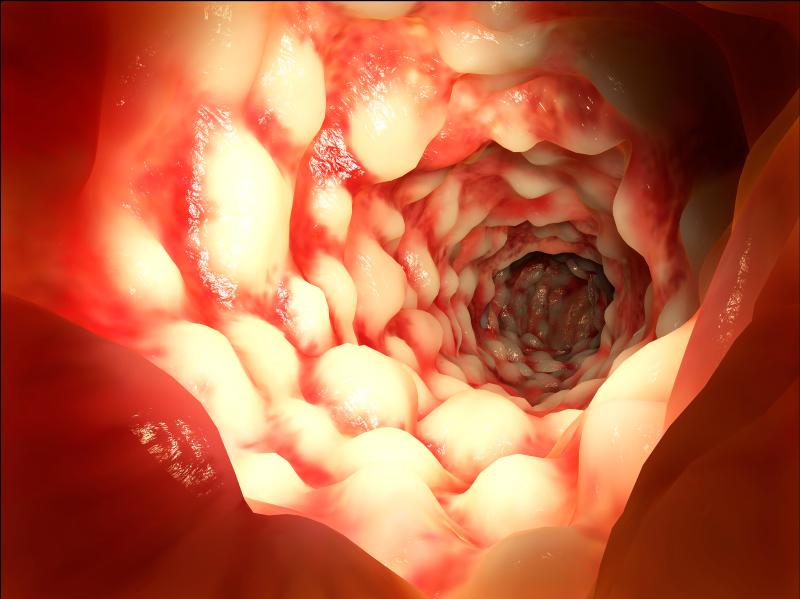
Use of adalimumab or infliximab in biologic-naïve patients with inflammatory bowel disease (IBD) delivers comparable rates of corticosteroid-free remission, as shown by a study presented at the Advances in Inflammatory Bowel Disease (AIBD) Conference 2019.
Other patient-related outcomes such as anxiety, depression, pain, fatigue, sleep and social satisfaction are also similar in patients treated with either drug.
The study included 256 biologic-naïve patients, of which 170 initiated adalimumab (109 with Crohn’s disease [CD] and 61 with ulcerative colitis [UC]) and 86 infliximab (51 with CD and 35 with UC). Most of the IBD patients were female, white, and had similar mean age and disease duration at baseline. [AIBD 2019, abstract P105]
No significant between-group differences overall were observed at baseline in IBD-related hospitalization, prior IBD-related surgery, concurrent corticosteroid use or immunomodulator use. There were also no significant differences in anxiety, depression, fatigue, pain, sleep or social satisfaction seen at follow-up between adalimumab- and infliximab-treated patients, and for CD and UC subgroups.
At follow-up, rates of steroid-free remission were comparable between adalimumab- and infliximab-treated biologic-naïve patients with UC (37.1 percent vs 36.2 percent; p=0.93). The combination of infliximab and an immunomodulator resulted in a higher rate of steroid-free remission than infliximab alone (53.8 percent vs 27.3 percent; p=0.12), but the difference was statistically nonsignificant.
The same trend was also observed for combination therapy with adalimumab and an immunomodulator as compared to adalimumab alone (43.9 percent vs 35.3 percent; p=0.20).
For CD, rates of steroid-free remission at follow-up were likewise similar between infliximab and adalimumab treatment groups (54.9 percent vs 67.0 percent; p=0.14). Combined therapy vs monotherapy also resulted in similar rates of steroid-free remission at follow-up. Logistic regression models showed that lack of steroid use was the only factor independently correlated with steroid-free remission at follow-up in CD patients (odds ratio, 0.37, 95 percent confidence interval, 0.17–0.78).
“These findings suggest the comparative effectiveness of adalimumab and infliximab are similar,” the researchers said.
In this study, longitudinal analyses were carried out using data from the IBD Partners cohort from April 2014 to July 2019 to compare the effects of adalimumab or infliximab therapy on Patient-Reported Outcomes Measurement Information System (PROMIS) measures and corticosteroid-free remission in adult biologic-naïve IBD patients who started either drug within 90 days of their baseline visit.
At least one follow-up visit 91–365 days later was required of the patients. Those who had prior biologic therapy exposure at baseline, history of ileoanal pouch or end ileostomy, or failed to include a start date for initiation of their biologic therapy were excluded in the analysis.
The researchers conducted bivariate analyses by adalimumab or infliximab subgroup, followed by logistic regression models to assess factors associated with steroid-free remission, stratified by CD or UC disease subtype.